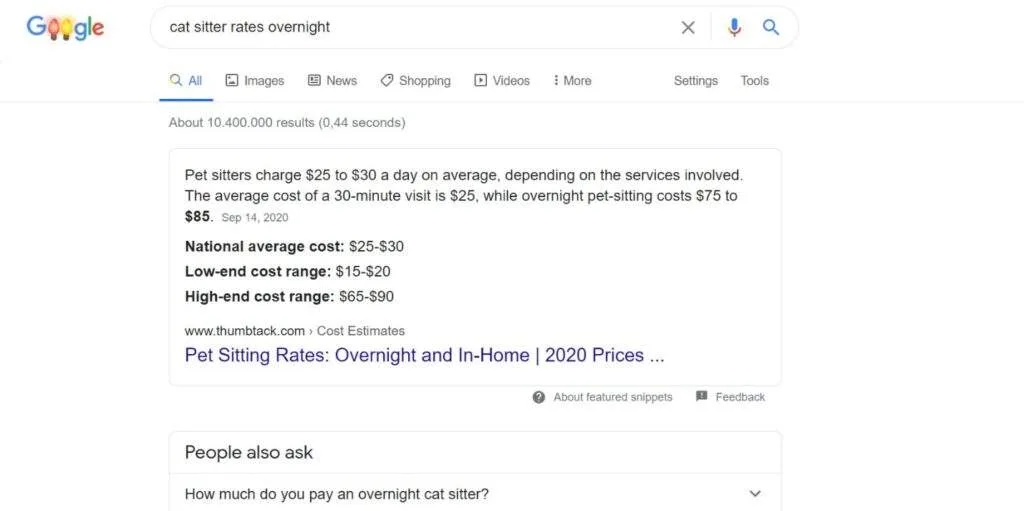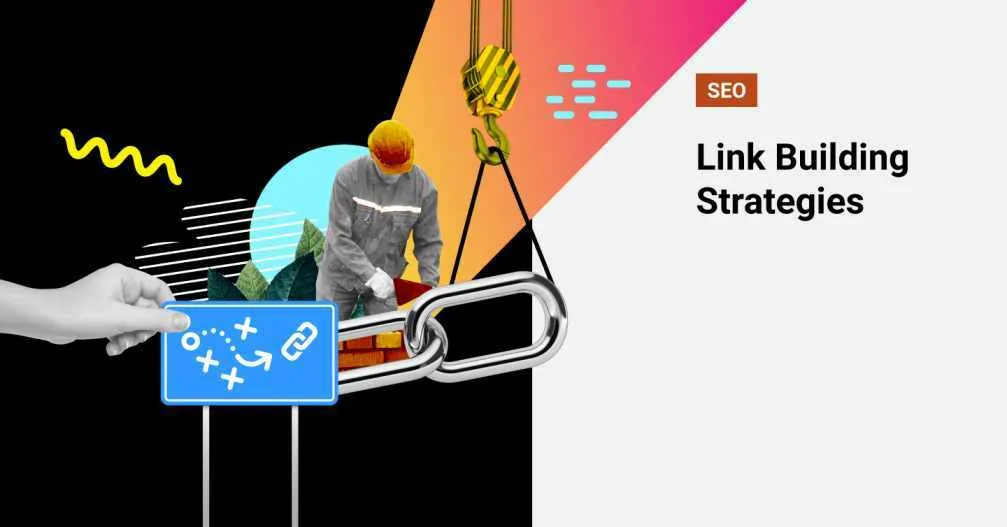Link building is similar to obtaining social proof. When search engines look at your site, having authoritative, robust links that point back to your website signals that you’re trustworthy. Without a strong SEO backlink profile, it’s impossible to rank for competitive keywords in your industry. Before we dig deep in, let’s first have a look at link building statistics.
- Backlinks and content pieces are the top two most vital factors to rank on Google for target keywords. (Google)
- Links from websites with higher domain ratings are more impactful than ones from lower domain rating sites.
- In 5 years, 92 percent of marketers deem that links will continue to be a ranking factor in Google algorithms.
If you’ve come to this page, it implies you want to learn more about SEO and link building. In this guide, we’ll walk you through all aspects concerning link building you should know. Moreover, we’ll tell you the need to hire an SEO link building services company. So, let’s begin!!
What is Link Building?
Link building is the practice of obtaining backlinks to gain trust and authority to enhance your search engine rankings ultimately. A backlink is merely a link back to your site from another site. To do that, you have to pitch relevant, useful content to other sites to acquire backlinks.
Many factors influence ranking in SERPs (search engine results pages), but you won’t be able to rank higher without a strong backlink profile.
To put it in simple words, your business won’t rank in search engine results if you don’t continually build quality, relevant links to helpful content on your website. Though there are lots of factors, links are the key factor when Google chooses which websites to rank.
To better understand the importance of link building for your website, you first have to comprehend how search engine operates.
How do Search Engines Operate?
Google relies on a complex algorithm known as PageRank to conclude which webpages to showcase in SERPs. With time, this algorithm has evolved, delivering more and more appropriate answers to questions. The algorithm considers more than 200 factors, but it boils down to this:
- Does your website have quality content?
- Do you own a wide diversity of links that point to that content?
All search engine factors are equal, though the key to a higher ranking is quality content plus a strong backlink profile.
Let’s take an example: Support you need a cat-sitter for weekend escapade to California. Moreover, you want rates for cat-sitters quite reasonable and you like them to come to your place and stay the night. Therefore, you enter “cat sitter rates overnight” into the search bar of Google.

Once you entered the search query, Google will send out a crawler or spider that looks at trillions of webpages, decide what they’re about, and indexes them or lodges them away to showcase in queries. Till now, Google has knowledge of more than 130 trillion pages. Google relies on its algorithm to conclude the SERP ranking order.
For “cat sitter rates overnight” – extremely specific keywords – there are around 5,39,000 results! Google has to conclude how to rank them. In order to do that, they rely on the PageRank algorithm, which depends on signals such as content quality, website structure, and your backlink profile.
From your very specific keyword – “cat sitter rates overnight” – Google can learn that you have a very specific requirement. You need a cat sitter who’s willing to stay overnight, and you also want to know how much the service is going to cost you. Then, according to its PageRank algorithm, Google showcases only those results it deems best matches your query.
You have your answer right there in search engine results – pet-sitting rates for overnight are $75 to $85.
Why Does Google Value Links So Much?
Google’s traffic originates from organic/unpaid search, but Google makes bucks off advertisements/paid search. To keep the continual stream of traffic paying its bills, Google has to provide users with a decent reason to return – cautiously curated organic results that satisfy searcher query or intent. Afterward, it sells plausible “clicks” to advertisers.
UX (user experience) is at the core of how Google makes bucks and eventually commands its algorithm (the technique Google relies on to rank sites). Without delivering a good user experience, Google could lose some search traffic and, ultimately, lose money.
Refining the technique (algorithm) is how it continually enhances the accuracy of results it delivers with time. Google has concluded that backlink profiles are the ultimate factor for a site’s authority and its content.
Websites don’t link to merely anything. Instead, they’ll link to relevant, useful, or authoritative content. In short, the more industry-relevant websites linking to a webpage, the more likely that website has relevant, helpful content that will deliver a decent user experience.
A website’s link profile conveys a story about how informative and trustworthy its content is. Google glances at each link as a “vote” – the more votes you own, the more probably you’ll win the first spot within search engine results.
Links are how we navigate the internet or the web. They would be valuable with/without Google. Google is better than other search engines when it comes to determining the validity and worth of links and converting that into a ranking technique.
In terms of a bigger picture, the success of Google can be attributed to its capability of parsing through trillions of links on the internet, interpret them and give a ranking value to numerous sites based on them.
Providing helpful, authoritative websites in search engine results delivers a decent experience to the user. And a decent user experience implies more users will often use the site. Thus Google will be able to sell more “clicks” to advertisers and make more bucks.
Benefits of SEO Link Building
Link building continues to remain an essential part of SEO, thanks to the benefits it offers for your website. Here are some benefits of SEO link building.
- More visibility of your website/blog in search engine results.
- Receive traffic from other sites linked to you.
- High-quality incoming links imply your website will be respected as a valuable resource, and it’s possible through crafting quality content.
- SEO link building even helps get indexed in search engine results quicker.
Factors That Influence Link Value
There are a lot of factors that make backlinks extremely bad for SEO, and there are even some that make backlinks more valuable than others.
- The Authority of the Linking Website
The most valuable kinds of backlinks originate from quality sites. Links from websites that are considered as top authoritative resources will indicate more positive signals to Google than links from lesser-known, low-quality websites.
To find out the authority of a website, there are many tools available online to check the website’s domain authority.
- No Follow Vs. Do Follow Status
When publishers add a link to their site, they can utilize HTML code in order to set the link as no follow or do follow. Do follow links indicate Google to notice and provide SEO value to the links. No follow links indicate Google to overlook the links and provide them with less SEO value.
Since do follow links send more positive signals to Google, they are considered more valuable than no follow links. Thus, you would like to have links to your website to be coded as “do follow.” Nevertheless, do follow backlink can yet drive traffic to your site.
- On-Site Link Location
Sites are built in sections. So, how valuable a link is may be influenced by the section in which that link appears. The more valuable links appear within the main body content of the website. Links may not obtain the same value from Google when they appear in the sidebar, header, or footer of the page. It’s a vital factor to consider as you want to build high-quality backlinks.
Types of Backlinks
Here are some best types of backlinks for SEO and how to build backlinks.
Editorial Backlinks
The best kinds of links for SEO originate from editorial mentions.
An editorial mention is when another site refers and links to your site in a piece of good content. An editorial backlink may be incorporated as:
- Citing someone from your organisation or some section from your content as a good source of information.
- Referring to your site as a resource for extra information
- Citing your site as a maker of an infographic
- Including your content or site in a link roundup
- Interviewing a person associated with your site.
Tips to Obtain Editorial Backlinks
- Build a powerful content marketing,
- Craft high-quality content.
- Build shareable content that other websites would like to talk about.
- Publish content that clearly shows your brand and website as a thought leader in the industry so that other websites will like to cite, interview, or source you.
Guest Blogging Backlinks
Guest posting is one of the most popular ways to obtain valuable backlinks.
When submitting to a guest post site, you’re generally allowed to incorporate an editorial backlink within the content. These kinds of backlinks are a great approach to build authority and trust.
Tips to Obtain Guest Blogging Backlinks
- Create a list of the most valuable guest blogging websites.
- Build an alluring pitch for your guest blogging outreach.
Business Profile Backlinks
In most scenarios, when you build your business online profile, you can incorporate a link back to your site. These links on social media networks, business listings, and industry-specific directories indicate to Google that a site is of high-quality and established.
Tips to Obtain Business Profile Backlinks
- Build profiles on popular directories
- Or review websites such as Yelp in your industry.
Comment Backlinks
When commenting on a blog post, you’re often allowed to incorporate a link back to your site. It’s generally mistreated by spanners and thus can turn to a negative link building tactic. However, if you publish genuine comments on quality blog posts, you can obtain some value as it can drive traffic to your website and boost your business or brand’s visibility.
Tips to Obtain Comment Backlinks
- Don’t overdo
- Comment on high-quality, relevant blogs/forums in your industry.
Guest Post Bio Backlinks
In some scenarios, guest blogging websites won’t incorporate or don’t allow a link back to the author’s website in the main body of the post. But they let the author incorporate a link in the author bio. Though bio backlinks don’t provide as much value as a link in the body of the content, they can yet add value to a site’s link portfolio.
Tips to Obtain Comment Backlinks
- Rely on the same guest blogging tactics mentioned above.
- Also conduct a backlink analysis on competitors to determine where they have obtained guest post links.
Bad Kinds of Backlinks You Should Know
As quality backlinks are extremely a vital part of search engine optimization, it’s easy to deem that all links, irrespective of how valuable, is useful. But not every link isn’t valuable. You should stay away from these kinds of backlinks.
Paid Backlinks
Though it’s an easy way to obtain links, you shouldn’t pay other publishers and sites to link to your website. According to Google, selling or buying links can negatively influence a website’s ranking in SERPs. In fact selling or buying backlinks that pass page rank goes agaisnt Google webmaster guidelines.
General Business & Article Directory Links
You should stick with the most authoritative, trustworthy, and industry-specific directories and don’t build profiles on directories that are spammy just to obtain links.
Forum Links
Joining a lot of forums with the aim to post links back to your website is bad. Only consider high-quality forums like with article directory links.
Press Release Backlinks
A backlink from a press release is usually coming from a very high authority site. It contains as completely natural in content link on a website that is generally highly trusted as an accurate and up to date news source. Search engines such as Google give huge amounts of value from these links. Especially if a link is coming from a Google News Approved Website. Local news sites are a great place to get a link
Creating unique content
One of the most powerful link building strategies is creating unique content and distributing it to as many sources as possible. Such links usually come from editorial votes of choice. In addition, if you write content that is interesting and useful to the target audience, you will increase the chances of receiving links. Such third-party links are the holy grail of all link-building strategies. If you’re trying to break into a competitive niche, you must create a unique offering that will attract the attention of influential individuals in your industry.
Links from aged domains
In order to attract links to your site, you should focus on earning links from older and unique domains. Domain and website age is a powerful top ranking factor.
Related websites
To get a higher search ranking, your links should come from content related to the topic of your website. Although, backlinks can help your rankings in the search engines, they will not help your site if it doesn’t contain relevant information. To attract links, you must also provide value in your articles. The more people read your content, the better it is for your SEO efforts.
Deep diving into related categories can bring in high-quality new links and establish you as an authority in your market.
Broken link strategy
This strategy is based on finding broken links on the websites of your competitors. In this method, you’ll look for the links of rivals and replace them with your own. This tactic is effective for many reasons. It increases the relevance of your website to consumers. Second, it improves brand awareness and authority.
Keyword Research
Keyword research is an important component of an link building strategy. This involves researching relevant industry keywords and implementing content for those keywords. Using links from other sites is another way to improve traffic. In addition, link building strategies should focus on linking to content with a specific purpose. As a result, your site will appear higher in search results. This is because of the number of relevant links it receives. In addition to this, it also helps your website rank higher in the search engines.
Email Outreach
One of the most important link building strategies involve email outreach. Whether you are pitching to press or other websites, email outreach is an important part of the campaign. Guest posts are an excellent option for getting a high-quality link from a credible website. Besides, guest posts can also be a good way to increase your website’s page rank. Developing a quality content for other sites can also help your SEO efforts. This is a great strategy to use to attract more visitors to your website.
If a sites webmaster requests money from you to publish your artcile just say no. After all, why would you pay someone to give them your own content so they can benefit from it. It would be rather like asking a car salesman to pay for giving you his own car.
Focusing on your own content
Among the most effective link building strategies is to focus on the content of your website. This should be interesting, and give people a reason to share your content. A good blog can increase the amount of traffic on your site. However, it’s important to focus on a particular audience, or else it will not be effective. Once you’ve determined which keywords generate the most traffic, you should concentrate on your content and how often you publish it.
Difficulties
eCommerce sites face unique challenges when it comes to link building. They have a low page-rank, and most websites do not want to link to such a website. So, your best bet is to create informative and interesting content and answer the questions of your audience. The content you create should be helpful to your target audience. By providing valuable information, you’ll be able to attract more links and increase your traffic. In addition, your visitors will be more likely to trust your brand.
15 Link Building Strategies for Marketers
- Use Strategic Guest Blogging.
- Create and Distribute Infographics.
- Get Active on Social Media.
- Use Resource Links From Trusted Sites.
- Leverage the Broken Links Strategy.
- Grow Your Personal Brand.
- Check Competitors’ Backlinks.
- Replicate Your Competitor’s Best Links.
- Create Link Building Roundups
- Establish Content Pillars
- Keep Track of Your Backlinks
- Reclaim Links Through Social Mentions
- Earn Editorial Links
- Have a balanced link velocity
- Focus on building 2nd tier links
Summary of thoughts
Link building is an important part of SEO. By obtaining relevant links to your website, you can improve your search engine ranking and increase your traffic. Using high-quality, relevant links will increase your domain authority and page authority, which will help you rank higher for your targeted key words. You can also build links on other websites that contain related content and products that you want to promote. The more relevant and quality links you have, the better.
Overall, it’s important to focus on all of the rankings factors. Backlinks is just one of over 200 factors search engine algorithms use to decided where to place your website. If you’re not attracting or building the right type of links and in the correct manner. You can run into trouble really fast and may never recover.







